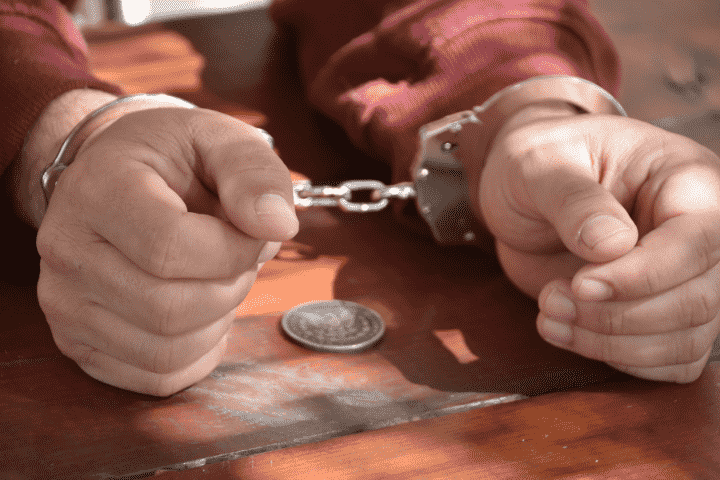An important turning point in the criminal justice procedure is a bail hearing. It determines whether or not a person suspected of committing a crime will be freed from custody while awaiting trial. It is crucial to know the subtleties of bail hearings procedure in order to understand the bigger picture of criminal procedure.

A judge evaluates the circumstances of an arrest during a bail hearing to determine whether to release the defendant from custody ahead of trial. This choice is extremely important because it directly affects someone’s liberty.
A bail hearing’s procedure main goal is to balance the scales of justice. On the one hand, it seeks to safeguard society by averting harm from defendants who would be a danger if freed. However, it also protects the rights of the accused, making sure they are not wrongfully detained.
A complicated legal structure that varies from jurisdiction to jurisdiction governs bail proceedings. For instance, the Constitution’s Eighth Amendment forbids excessive bail in the United States. However, judges’ interpretations of “excessive” can vary greatly.
The prosecutor presents proof and justifications for the defendant’s continuing incarceration during a bail hearing. They could emphasise the seriousness of the accusations, the defendant’s prior bail in criminal procedure activity, or any elements that increase the likelihood of flight.
The defence, on the other hand, supports the defendant’s release. The defendant’s ties to the community, lack of criminal history, or lack of flight danger may be highlighted.
When evaluating whether or not to give bail to a defendant, several variables are taken into account. These consist of:
The judge’s decision may be strongly impacted by the defendant’s history of prior criminal convictions.
More serious offences could increase the likelihood of being imprisoned.
Strong ties to the neighbourhood may be cited as justification for release.
If the defendant is released, the judge will determine whether they are likely to run.
There are various forms of bail, including:
Defendants or their families can pay the full bail amount in cash.
A bail bondsman guarantees the defendant’s appearance in court.
In some cases, defendants are released based on their promise to appear in court.
The bail hearing process can be intricate, involving legal arguments, witness testimonies, and the presentation of evidence. It is a critical moment in the bail in criminal proceedings.
Bail hearings are not without their flaws. Some of the challenges and controversies include:
There are concerns that certain demographics face bias in bail decisions.
Those with financial means are more likely to secure their release.
Throughout history, several landmark bail cases have shaped the way bail hearings are conducted. These cases have redefined bail laws and practices.
Having legal representation during a bail hearing is paramount. Attorneys play a crucial role in advocating for their clients’ release.
It’s essential to differentiate between a bail hearing and a trial. A bail hearing does not determine guilt or innocence but focuses on pretrial release conditions.
As the legal landscape evolves, so do bail hearings. Reforms are being considered to address the challenges and controversies surrounding this process.
Initiating the bail appeal process starts with filing a formal Notice of Appeal with the appropriate appellate court. This document signals your intention to challenge the bail decision.
The Appellate Brief is a comprehensive document outlining the legal arguments for your appeal. It is crucial to present a compelling case with supporting evidence and legal precedent.
Oral arguments provide an opportunity for your legal representation to present your case before the appellate court. This is a critical phase where your attorney can address questions and concerns from the judges.
Having an experienced attorney is essential in navigating the bail appeal procedure. They can help you craft a strong legal argument, guide you through the complexities of the process, and represent your interests effectively.
Appellate courts often give deference to the original bail decision, making it challenging to overturn. However, a well-prepared legal strategy can make a difference.
Courts generally presume that the initial bail decision was made in accordance with the law. Overcoming this presumption can be a significant challenge in bail appeals.
Throughout legal history, several cases have shaped the landscape of bail appeals. These cases have not only influenced legal practices but also highlighted the importance of due process.
Success in a bail appeal often hinges on the strength of your legal strategy, the quality of your legal representation, and the ability to demonstrate a compelling reason for the appellate court to reconsider the bail decision.
Can I request a bail hearing if I’ve been arrested?
What happens if bail is denied?
Are there alternatives to cash bail?
Can the bail amount be changed after it’s set?
How long does a bail hearing typically last?
Can I appeal a bail decision if I’ve been denied bail?
What kind of evidence can I present in a bail appeal?
How long does a bail appeal typically take?
Is it possible to have bail conditions modified through an appeal?